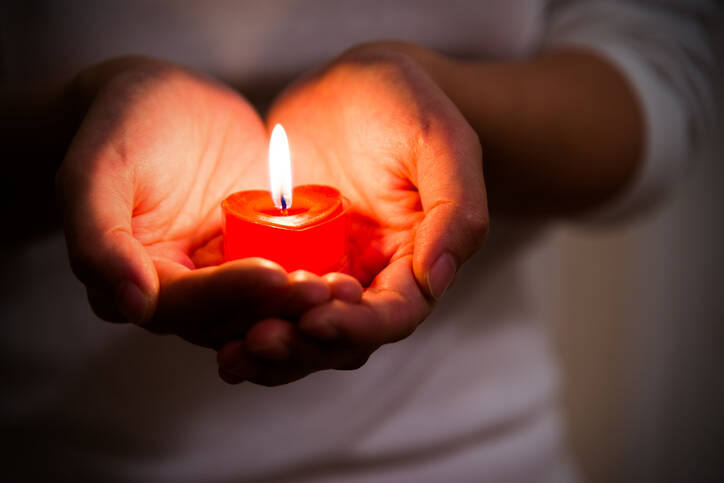The words we Christians use are a bit like the bricks in our streets. We do not give them much thought so long as they are in place beneath us. “Grace” is one of those words. We use it, but can we explain it? Some might call up a bit of the catechism. It says that “grace is favor, the free and undeserved help that God gives us to respond to his call to become children of God, adoptive sons, partakers of the divine nature and of eternal life” (No. 1996).
So, we might say that grace itself is like a paving stone. It is the place where our humanity touches the ground of God’s divinity. But loosen that stone a bit and notice that grace also sets a limit. It keeps us from saying that we have experienced God himself, the way one might experience, say, a road or a cat. We use the word “grace” to say that we have had a real experience of God but not an exhaustive one. God has truly touched us, yet God remains transcendent, a mystery beyond us.
Pentecost is not the day that we pause to acknowledge the faceless God. This is not an apt notion of the Holy Spirit. God is always faceless. None of us have seen the face of the Father or—speaking strictly—of the Son. Christ has revealed himself through chosen apostolic witnesses. Metaphorically, we have seen his face in the church and in her Scriptures. His glorified visage is yet to be revealed to us.
We might say that grace itself is like a paving stone. It is the place where our humanity touches the ground of God’s divinity.
Yet even in this season of social distancing, Pentecost tells us that God continues to touch us. In his own divine depth, the Holy Spirit remains an utter mystery, but we have nonetheless felt his true touch. We have known something evident yet eternal. We have been graced.
Using two simple objects, a stone and a sponge, St. Ignatius Loyola gave us a great image of grace, the entrance of the Holy Spirit into our lives. He wrote:
In the case of those going from good to better, the good angel touches the soul gently, lightly, and sweetly, like a drop of water going into a sponge. The evil spirit touches it sharply, with noise and disturbance, like water falling onto a stone (Spiritual Exercises, No. 335).
In those parts of our lives where we are coming closer to God, the Spirit slips into our lives like water on a sponge, says Ignatius. The Spirit enters gently with feelings of peace and contentment.
In those parts of our lives where we are coming closer to God, the Spirit slips into our lives like water on a sponge, says Ignatius.
And in those same regions it is the evil spirit who unsettles, who hits so harshly, like water splashing against a rock.
The process is reversed in those parts of our lives where we are drifting away from God. Then it is the Holy Spirit who must splatter, sometimes even smash, trying to awaken us from the slumber of sin.
In the case of those who are going from bad to worse, these spirits touch the souls in the opposite way. The reason for this is the fact that the disposition of the soul is either similar to or different from the respective spirits who are entering. When the soul is different, they enter with perceptible noise and are quickly noticed. When the soul is similar, they enter silently, like those who go into their own house by an open door.
In this time of virus, how has the Spirit been at work in your life? To answer that question, look at the turmoil and the blessings of these past weeks. Where have you been hit hard? Where have you felt the dew? What direction where you headed when these things happened? Pondering this will not reveal the infinite depths of God, but it will tell you what you need to know about grace or its absence in your life.
Readings: Acts 2: 1-11 1 Corinthians 12: 3b-7, 13-17 John 20: 19-23










